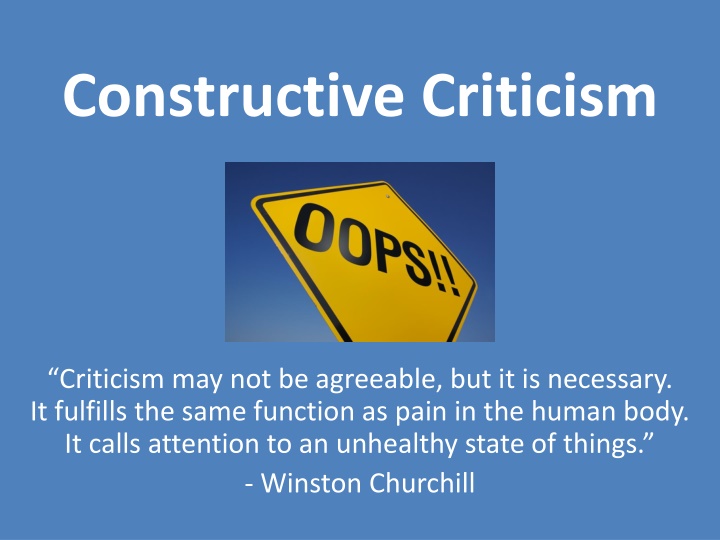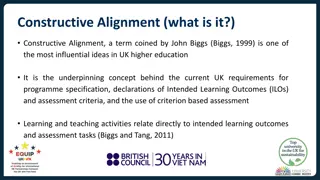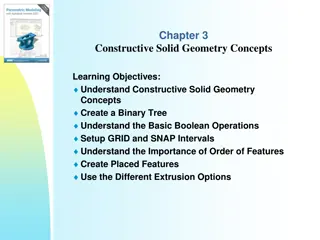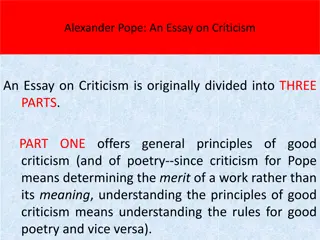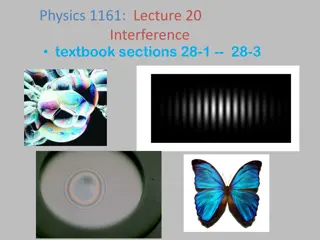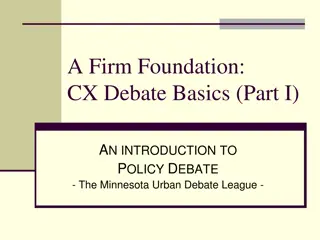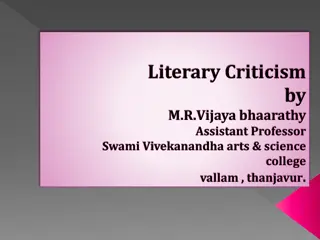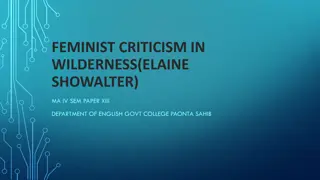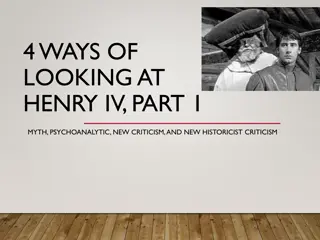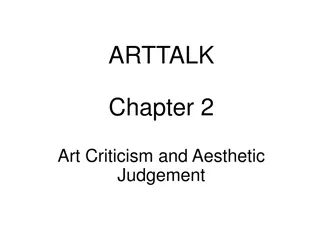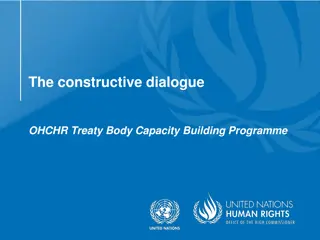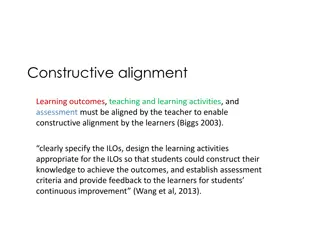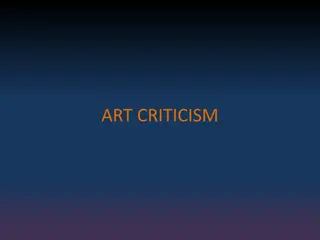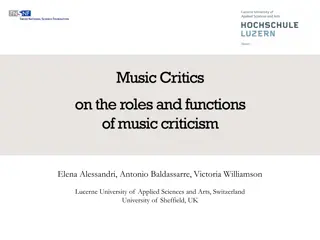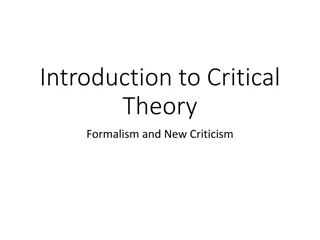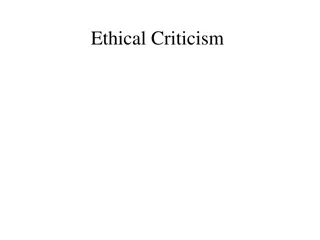Constructive Criticism in College
Constructive criticism plays a vital role in personal growth and development. It distinguishes between constructive and destructive feedback, highlighting the intent behind criticism and its significance in college settings. Embracing feedback positively can enhance one's learning experience and academic performance, fostering a culture of improvement and self-awareness.
Download Presentation

Please find below an Image/Link to download the presentation.
The content on the website is provided AS IS for your information and personal use only. It may not be sold, licensed, or shared on other websites without obtaining consent from the author.If you encounter any issues during the download, it is possible that the publisher has removed the file from their server.
You are allowed to download the files provided on this website for personal or commercial use, subject to the condition that they are used lawfully. All files are the property of their respective owners.
The content on the website is provided AS IS for your information and personal use only. It may not be sold, licensed, or shared on other websites without obtaining consent from the author.
E N D
Presentation Transcript
Constructive Criticism Criticism may not be agreeable, but it is necessary. It fulfills the same function as pain in the human body. It calls attention to an unhealthy state of things. - Winston Churchill
What is Constructive Criticism? Feedback about someone else s work Valid and well-reasoned opinions Includes both positive and negative comments Friendly manner rather than an oppositional one Valuable tool in raising and maintaining performance standards
Constructive vs. Destructive Criticism Constructive Criticism Intends to educate Related to the work Helps build on an idea Makes the outcome better Is intelligent and calculated Destructive Criticism Intends to embarrass Feels like a personal attack Tears down an idea Makes the person feel worse Includes rapid-fire and random responses Tries to take over Comes along to help
Constructive Criticism in College Communication styles differ in college High school teachers Goal is to increase self-esteem and correct errors May be less direct when giving feedback or assessing work College professors Goal is to correct errors and increase proficiency More direct or straightforward in feedback May not mention what was done well
Understanding the Intent of Criticism Constructive criticism may be interpreted as a personal attack if you don t understand its purpose However, professors are not launching a personal attack by giving you direct feedback No vendetta against students Their job is to make you a stronger critical thinker, a better writer, and a more knowledgeable person They have the benefit of experience and perspective to offer you quality feedback and advice You will not improve without hearing where you went wrong and how to correct it
Prepare Yourself for this Change Start preparing now for the shift in feedback styles you will encounter in college in order to Alleviate culture shock Receive feedback in the spirit in which it s intended Learn from criticism more quickly Use the following tips to help you process constructive criticism and become more thick- skinned
Tips for Processing Constructive Criticism 1. Stop 2. Separate the content from the delivery 3. Reflect and use it as a learning experience 4. Acknowledge your feelings, but don t take it personally 5. Learn something and move on
Stop Do not react or respond immediately Take a deep breath or count to 10, if necessary
Separate the Content of the Message from the Manner in which It Is Delivered Feedback in college will usually be professional and appropriate Some criticism may be delivered with emotion such as frustration, anger, or sarcasm Keep your cool and stay rational Don t match the other person s emotions Reacting negatively or emotionally generally makes the situation worse Address the underlying issue, not the way it s being raised
Reflect Upon and Learn From the Feedback What is the content of the message that was conveyed? Move past defensiveness to genuinely analyze the feedback Was the criticism justified? To what extent? If so, how can you improve? If not, what else can you learn from the situation?
Acknowledge Your Feelings, But Don t Take It Personally Some criticism may have a big impact on you It may sometimes be personal, and it often feels personal It s ok to feel hurt, angry, sad, disappointed, stung, surprised, or whatever else However, don t let it Bring you to a standstill Define you Lower your self-esteem Remember: Nobody s perfect!
Learn Something and Move On Take the lesson away from the experience, but leave the negative feelings in the past Use it as a challenge to get better Use what you ve learned so you don t repeat the same mistakes
This work is licensed under a Creative Commons Attribution-NonCommercial 3.0 Unported License.
